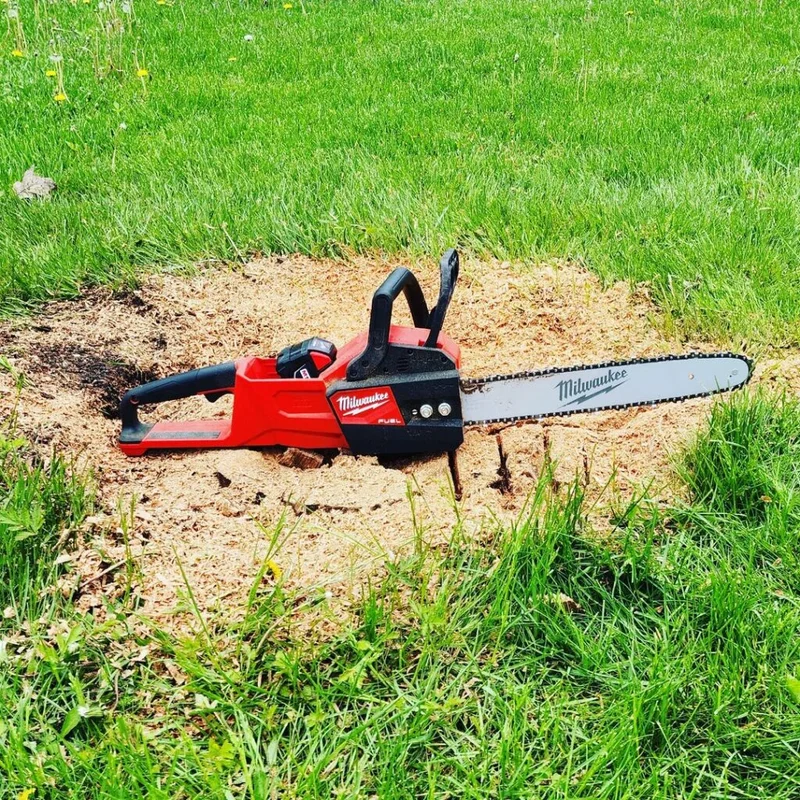Milwaukee's Chainsaw Recall: A Glitch in the Matrix or a Chance to Innovate?
Okay, let's talk about this Milwaukee chainsaw recall. Ninety thousand units. A potential laceration risk. At first glance, it's easy to see the headlines and think, "Oh no, another product failure." But as someone who's spent years diving deep into the intersection of technology and human ingenuity, I see something else here: an opportunity. A chance to learn, adapt, and build something even better.
See, even the most cutting-edge tools, literally and figuratively, can have their hiccups. This recall, stemming from a potential failure in the chain brake mechanism – that vital safety feature designed to instantly halt the chain's spin – highlights the complexities of bringing powerful tech to the masses. The recalled units, identified by that tell-tale "A" in the serial number, were sold at major retailers like Home Depot, finding their way into the hands of both seasoned pros and weekend DIY warriors. And while the company has thankfully only received two reports of brake failure, including one injury, it's a stark reminder that even small defects can have big consequences. A Milwaukee Tool chainsaw is being recalled due to this safety risk
It's easy to focus on the negative, but I think that would be a mistake. How many times have we seen history’s greatest innovations emerge from initial setbacks? Think about the Wright brothers – their early glider attempts were, shall we say, less than graceful. But they kept iterating, kept learning, kept pushing the boundaries of what was possible. This chainsaw recall is no different. It's a chance for Milwaukee, and the entire power tool industry, to double down on safety, reliability, and user-centric design.
Imagine a future where tools are not just powerful and efficient, but also intuitively safe, proactively identifying potential risks before they even arise. What if chainsaws, and other potentially dangerous equipment, were equipped with advanced sensor systems that could detect anomalies, provide real-time feedback to the user, and even automatically shut down in the event of a malfunction? It's not science fiction, folks. The technology exists. It's simply a matter of applying it thoughtfully and intentionally.

Milwaukee is asking customers to immediately stop using the recalled chainsaws and contact them for a free repair, even providing a prepaid shipping label to make the process as seamless as possible. Registering your product at their website is the first step. That's a responsible move, and it shows they're taking this seriously. But I hope they go even further. I hope they use this recall as an opportunity to engage with their customers, gather feedback, and co-create solutions that will shape the future of power tool safety. What if Milwaukee offered customers who returned their recalled saws a sneak peek at the next generation of safety features? What if they created a community forum where users could share their experiences and contribute to the design process?
This situation reminds me of the early days of the internet. Remember all the security vulnerabilities, the viruses, the phishing scams? It felt like the Wild West out there! But we didn't give up on the internet. We doubled down on cybersecurity, developed new protocols, and created a safer, more resilient online world. We can do the same thing with power tools. We can transform this recall into a catalyst for innovation, a turning point in the pursuit of safer, more reliable technology. And honestly, when I think about the potential to prevent injuries and empower users with greater control and confidence, I get genuinely excited. This is the kind of challenge that inspires me.
I also think we need to consider the ethical implications of increasingly sophisticated technology. As tools become more autonomous and intelligent, we need to ensure that they are designed and used responsibly. What happens when a chainsaw makes a decision that conflicts with the user's intent? Who is accountable when things go wrong? These are complex questions that require careful consideration.
A Chance to Build the Future, One Saw at a Time
So, what's the real story here? It's not just about a chainsaw recall. It's about our collective ability to learn from mistakes, embrace innovation, and build a safer, more empowering future for everyone. It's about recognizing that even the most advanced technology is ultimately a tool, and that the true power lies in our ability to use it wisely and responsibly. Let's not just fix the saws; let's fix the system and build something truly extraordinary.

